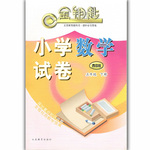题目内容
The money we made last year_____150million.
A. added up B. added to
C. added up to D. added
C
【解析】
试题分析:考查词组辨析。A.合计 B. 加入C. 合计达D.加。句意:我们去年制造的钱合计达有十五亿。故选C。
考点:考查词组辨析。

练习册系列答案
 金钥匙试卷系列答案
金钥匙试卷系列答案
相关题目
题目内容
The money we made last year_____150million.
A. added up B. added to
C. added up to D. added
C
【解析】
试题分析:考查词组辨析。A.合计 B. 加入C. 合计达D.加。句意:我们去年制造的钱合计达有十五亿。故选C。
考点:考查词组辨析。

 金钥匙试卷系列答案
金钥匙试卷系列答案